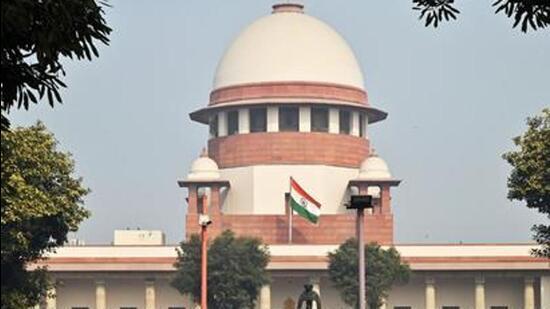
Calling someone ‘Miyan-Tiyan’ & ‘Pakistani’ not an offence: Supreme Court
In a recent judgment, the Supreme Court has ruled that calling someone “Miyan-Tiyan” and “Pakistani” is not an offence. The court stated that while such remarks may be considered in poor taste, they do not constitute a criminal offence. This decision was made in a case where an 80-year-old man was accused of hurling abuses at an Urdu translator in Jharkhand.
The case was filed against the 80-year-old man after the translator alleged that he was abused and threatened by the elderly man. The complainant claimed that the man hurled abuses at him, including calling him “Miyan-Tiyan” and “Pakistani”. However, the Supreme Court rejected the allegations and closed the case, stating that the remarks did not amount to hurting the religious sentiments of the translator.
The Supreme Court’s judgment highlights the importance of distinguishing between free speech and hate speech. While it is essential to respect the religious beliefs and sentiments of others, it is equally important to ensure that individuals are not unduly restricted in their ability to express their opinions.
In this case, the court recognized that the remarks made by the 80-year-old man were likely intended to be derogatory and offensive. However, it also acknowledged that the translator did not suffer any harm or injury as a result of the remarks. Therefore, the court concluded that the remarks did not amount to a criminal offence.
The Supreme Court’s decision is significant not only because it highlights the importance of distinguishing between free speech and hate speech, but also because it underscores the need to address the root causes of religious intolerance and hate. In a society where religious differences are often used as a pretext for violence and discrimination, it is essential to promote tolerance and understanding.
The case highlights the need for greater cultural sensitivity and awareness of the potential impact of our words and actions on others. It is essential to recognize that words can be hurtful and offensive, even if they are not intended to be so. Therefore, it is important to exercise caution and consideration when expressing ourselves, particularly in public spaces.
The Supreme Court’s decision also underscores the importance of addressing the social and economic inequality that often drives religious intolerance and hate. In a society where economic and social inequalities are significant, it is essential to promote greater understanding and tolerance between different communities. This can be achieved through education, community outreach, and other initiatives that promote social cohesion and inclusion.
The case also raises important questions about the role of law in addressing religious intolerance and hate. While the Supreme Court’s decision is a welcome step forward, it is essential to recognize that the law can only do so much to address these complex issues. Ultimately, it is up to individuals and communities to promote greater understanding and tolerance.
In conclusion, the Supreme Court’s decision that calling someone “Miyan-Tiyan” and “Pakistani” is not an offence is a significant step forward in promoting greater understanding and tolerance in our society. While the remarks made by the 80-year-old man were likely intended to be derogatory and offensive, the court’s decision highlights the importance of distinguishing between free speech and hate speech. The case also underscores the need to address the root causes of religious intolerance and hate, including social and economic inequality.
Source:






